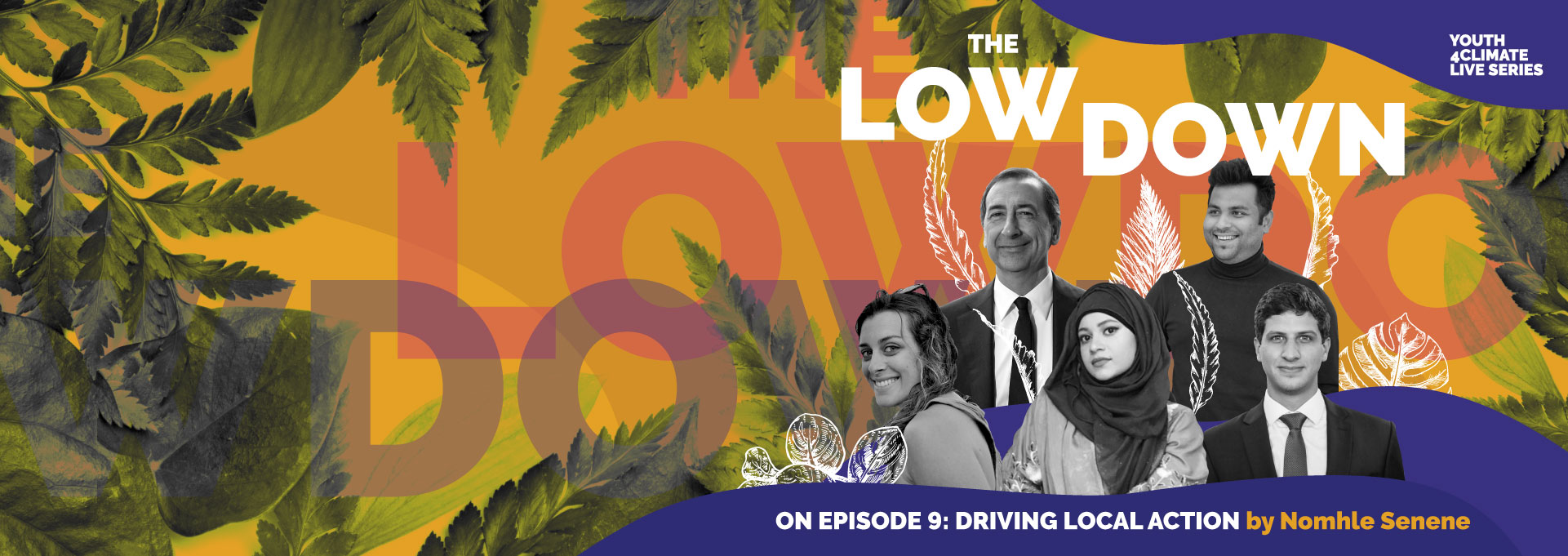
The #Youth4ClimateLive Series aired its ninth and final episode on February 26, 2021. This session was all about Driving Local Action, and hundreds of young people from around the globe joined in. #Youth4ClimateLive has time and again given global youth the opportunity to engage with policy experts and young changemakers leading in the fight against climate change and to draw inspiration as to how they can push for action themselves.
Moderated as always by Salina Abraha and Ahmed Badr, the final episode provided information on how to drive climate action at the local level and participate meaningfully in the global push for climate ambition. Joining in this episode were the Mayor of Milan, Italy, Giuseppe Sala, the Mayor of Recife, Brazil, Joao Hernique Campos, and youth panelists Sarah Farheen Khan, Neeshad Shafi and Lodovica Cattanti. All shared very inspiring messages on what we’ve accomplished so far and thoughts on how to keep the momentum going.
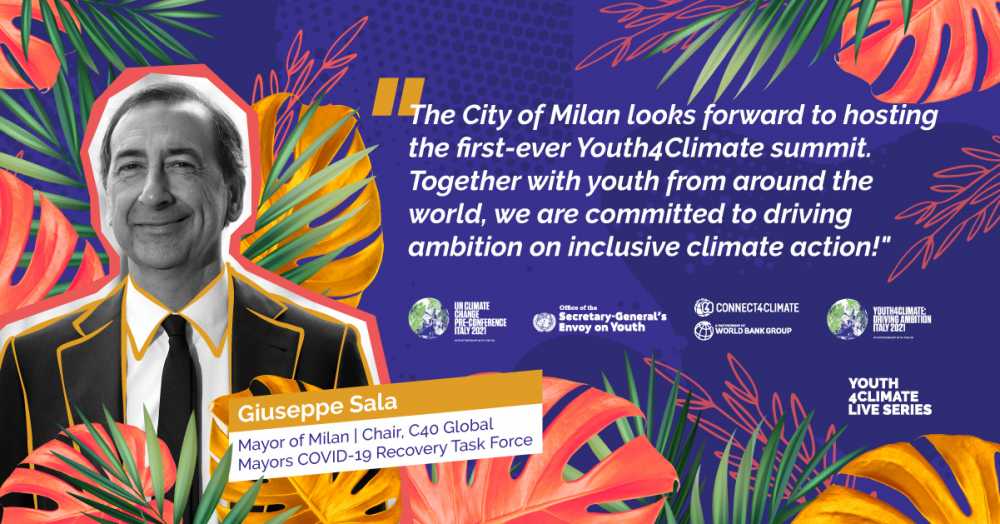
Driving Climate Ambition
Mayor Giuseppe Sala shared challenges Milan is facing in regard to sustainability and shared some ideas of how Italy and other countries could lead the transition to sustainable cities. He mentioned too how the Covid-19 pandemic has opened our eyes to the dangers of the climate crisis.
Actions Sala suggested to drive sustainable development in cities included green stimulus measures, city-to-city support systems, and a cleaner and greener economy. He championed mass transit and called for an end to fossil fuels within public transportation. He also stressed that air pollution is a huge problem seriously affecting the health of citizens—especially the most vulnerable.
“I believe the recovery from Covid-19 is our chance to create the green and just future we want,” Sala said, “in terms of jobs and an inclusive economy, resilience and equity, and health and well-being.”
The Mayor of Milan also mentioned that cities cannot implement a green and just recovery alone. This is an important point, especially considering that each city is different and that strategies for action may vary from city to city. At the end of the day, though, all cities should have their eyes fixed on a sustainable future—whatever that looks like for them.
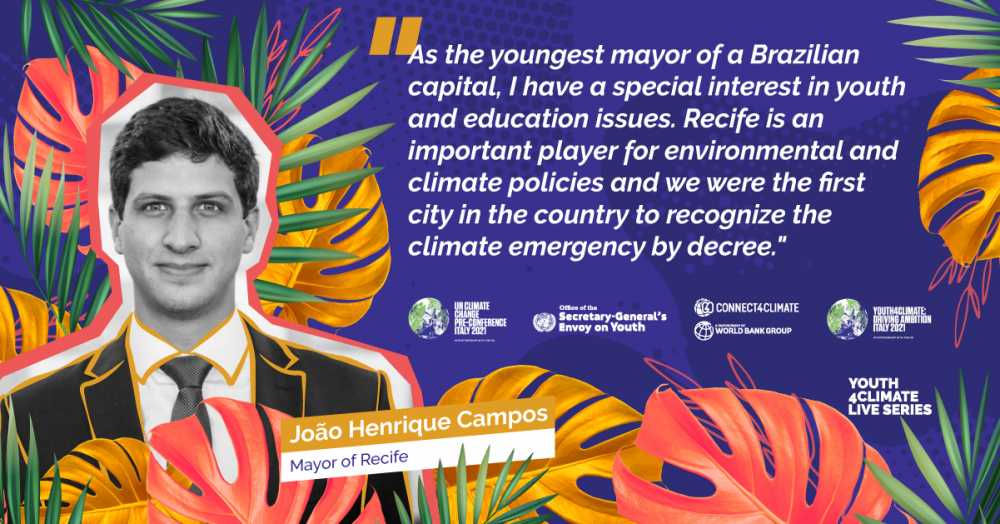
Putting Cities on a More Sustainable Path
The first step in making cities sustainable is acknowledging the climate emergency, and the Mayor of Recife, Joao Hernique Campos, mentioned that his city was the first in Brazil to do so. This kind of acknowledgement opens the door for further actions. Bringing sustainability and climate education into the school system is one of the things that Recife has done to address the emergency. Helping young people in schools learn about the climate and sustainable disciplines empowers them to come up with their own solutions.
Many cities in the world are very vulnerable to the effects of climate change, which can be an important motivator in encouraging cities and local leaders to take action. Young people also have an integral role to play in driving needed change.
“Your voices truly matter,” said UN Climate Change Executive Secretary Patricia Espinosa to the young people tuning in for the episode. “These discussions, these solutions, they truly matter. It may not always feel that way, given all the big issues we're facing this year, and I know you've been ignored for too long. But I assure you: I hear you, I respect you, I value you, and I thank you.”
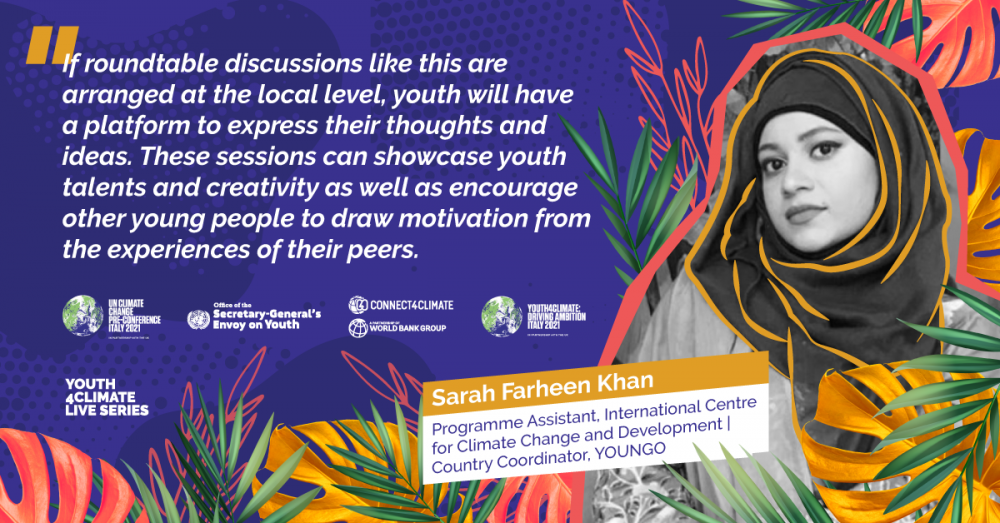
Youth Involvement in the Fight for a Sustainable Future
The guests shared some important points on youth involvement in driving local action. Young voices need to be heard, as today’s youth will be the ones facing the most severe effects of climate change in the long run. Sarah Farheen Khan, a Programme Assistant at the International Centre for Climate Change and Development, offered insights into the importance of community-led projects in driving ambition.
She mentioned that regional issues such as poverty, lack of education, and lack of clean water can get in the way of climate action, and noted that well-tailored projects can help affected areas get the resources they need and overcome these barriers. One other point that stood out for me was that we youth can amplify our voices through social media and digital strikes. Things like social media storms can really make an impact, if enough people participate. Being proactive about devising local actions for youth also goes a long way towards fostering their participation.
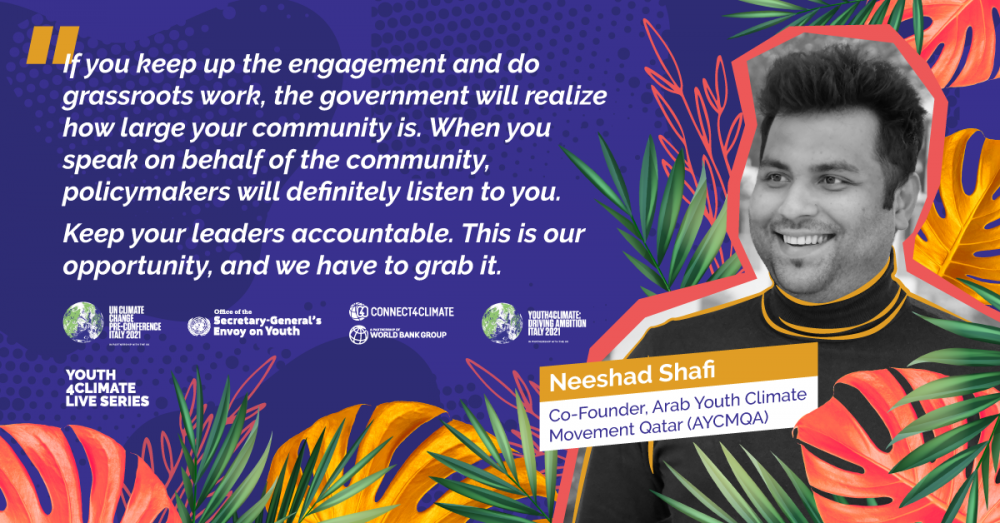
Neeshad Shafi, cofounder of the Arab Youth Climate Action Movement Qatar, added that we have to take the ideas we learn in international discussions like #Youth4ClimateLive and bring them home with us to share and implement locally. This statement really stood out for me. The solutions we learn really need to be put into action to be useful. “The idea is to bring young people to the forefront of climate action,” he said. This really left me thinking that youth should not be afraid to amplify our voices, speak out, and share our ideas in our communities as well as with local and global leaders.
The final guest, Local Conference of Youth organizer Lodovica Cattani, mentioned that one of the most powerful tools available to young climate leaders is networking. She also stressed the importance of educating youth and children about the climate crisis, which made an impression on me. Getting young people to understand the impacts of climate change and to brainstorm ideas for combatting its effects goes a long way. Building confidence is key when it comes to youth. Finding the courage to speak out and urge local leaders to take action is essential. Young people should not be afraid to show our ideas and push for change, because our perspective is valuable and we can make a difference!
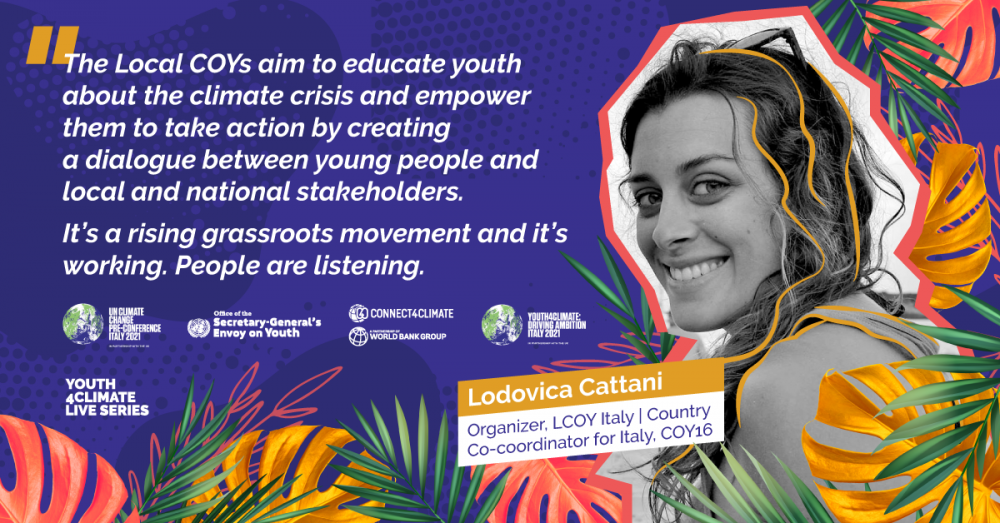
I learned a lot from this episode and the #Youth4ClimateLive Series as a whole. It has been so inspiring to hear from young leaders who are making a change. As a youth climate activist myself, I have long seen the climate crisis as a serious issue facing humanity. We have the solutions and resources we need—we just have to make sure everybody is on the same page and turn our ideas into reality.
We need to see more action ahead of and during COP26, which means we youth need to stand up and make ourselves heard. We need to share our work and inspire other young people. We need to be there on the frontlines showing the way. The climate crisis is already affecting so many people today—we youth cannot afford to stop speaking up. We need to be actively involved in the Pre-COP and COP26, driving action and climate ambition.
Enjoy our final edition of #TheLowdown? Follow the author, Nomhle Senene, on Twitter and Instagram!



